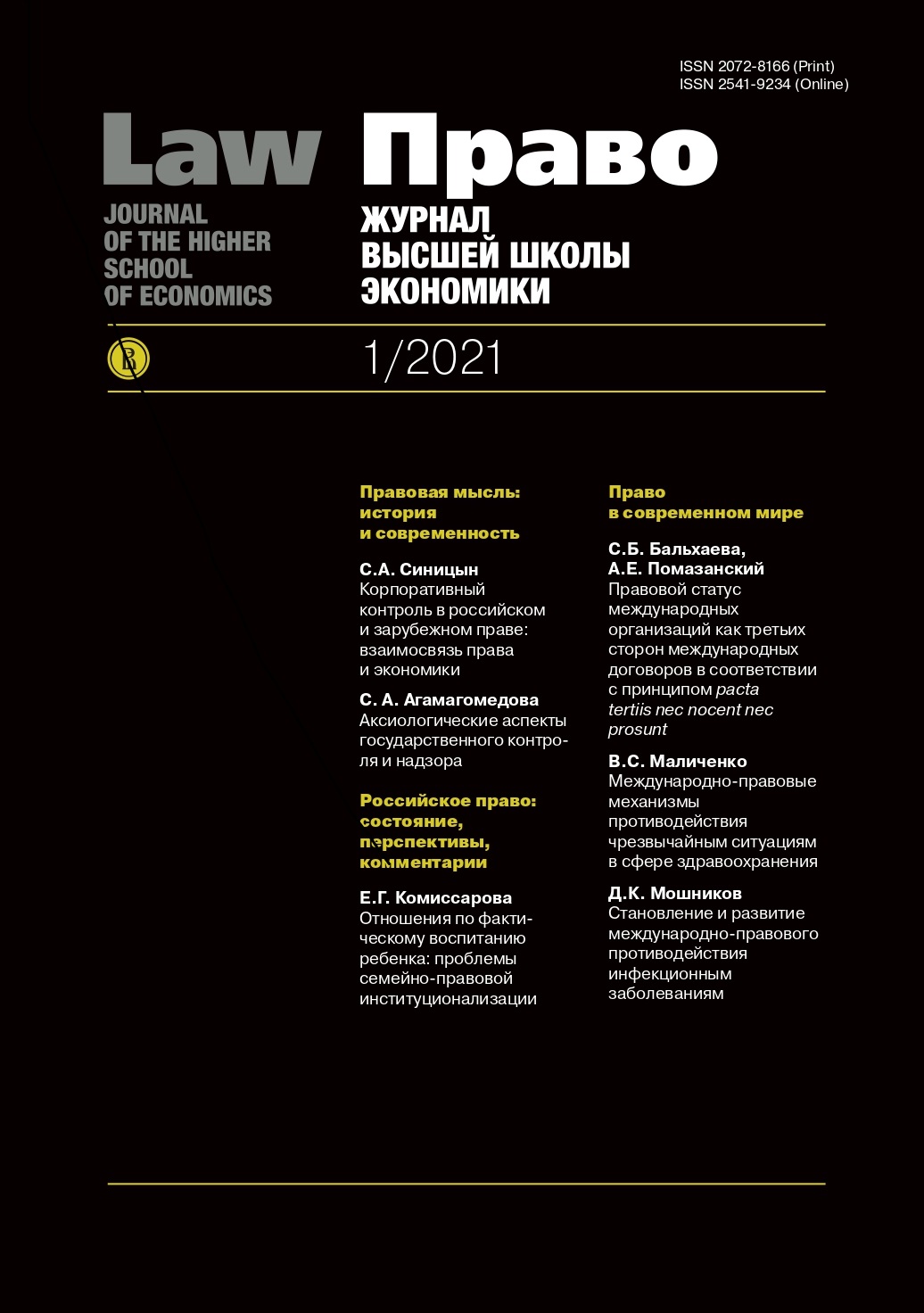Legal Regulation of Employment Probation Period: Experience of Foreign Countries
Abstract
In times of economic instability, organizations are looking for minimization costs and increase its efficiency. The legal regulation of labour offers possibility of conducting probation at the beginning of employment to check employee's labour qualities and compliance with the work. The employee could also evaluate the working conditions at the new employer. Probation is attractive for the employer as a simplified and cost-effective way to dismiss employees. The employer has the right to select permanent employees who have successfully passed the probation, since employees on probation are subject only to minimum labour standards. The aim of the research is a comprehensive analysis of the balance of flexibility and rigidity in employment legal regulation in foreign countries in order to develop recommendations for optimizing probation labour legislation. The methods are analysis and synthesis, abstraction and generalization. The features of legal regulation in the main legal families affect legal regulation of labour in foreign states, important from the point of view of finding a balance between employers and employees interests in terms of flexibility and rigidity of regulation of labour. The article considers two main models of legal regulation of probation abroad. They are characterized by both general and special patterns. Common patterns include: lack of a state definition of probation; consolidation of a single list of criteria for regulation of probation (duration, rules for its changing and termination); prevention of discrimination and consideration of the legal status of special subjects to eliminate it and improve position in labour market. Special patterns are associated with mechanism of fixing maximum period, types of employment contracts, concepts of regulation of labour, other legally fixed periods of work that can affect legal status of employee on probation. The result of the analysis is proposals for improving regulation of labour in terms of combining flexibility and rigidity of legal regulation of labour.
References
Casale G., Perulli A. (2014) Towards Single Employment Contract: Comparative Reflections. Oxford: Hart, 108 p.
Chikanova L.A., Chesalina O.V., Sharrer A. (2015) Fixed-term employment contract in Russia and Germany. Trudovoe pravo v Rossii i za rubezhom, no 3, pp. 45-52 (in Russian)
Davulis T., Petrylaité D. (2012) Labour Regulation in the 21st Century: In Search of Flexibility and Security. Cambridge: Scholars Publishing, 350 p.
Filipova I.A. (2017) Comparative analysis of regulation of labor relations in Russia, France, USA and UK. Zhurnal zarubezhnogo zakonodatelstva i sravnitelnogo pravovedenaiya, no 1, pp. 137-142 (in Russian)
Ford K., Notestine K., Hill R. (2000) Fundamentals of Employment Law. Tort and Insurance Practice. Chicago: American Bar Association, 774 p.
Lee K., Nagaraj S. (1991) Malaysian Economy Beyond 1990: International and Domestic Perspectives. Kuala Lumpur: Persatuan Ekonomi, 407 p.
Loh E. (1994) Employment Probation as a Sorting Mechanism. International Labor Review, no 3, pp. 471-486.
Lushnikov A.M., Lushnikov M.V. (2009) Course of labor law. T. 1. Essence of labor law and its development. Labor rights in the human rights system. Moscow: Statute, 879 p. (in Russian)
Nikolaenko T. (2017) Dismissal of a foreign top manager on probation: disputes and analysis of the issue. Trudovoe pravo, no 7, pp. 47-54 (in Russian)
Reitz A. (2007) Labor and Employment Law in the New EU Member and Candidate States. Chicago: American Bar Association, 402 p.
Rogowski R. (2013) Reflexive Labor Law in the World Society. Cheltenham: Edward Elgar, 352 p.
Novikov M.L. (2008) State policy on employment of persons with disabilities: international experience and Russian practice. Moscow: Perspektiva, 140 p. (in Russian)
Slesarev S. (2019) Probation. Trudovoe pravo, no 4, pp. 5-17 (in Russian)
Vaughan R. (2018) Merit Systems Protection Board: Rights and Remedies. N.Y.: Law Journal Press, 560 p.
Yarkov V.A. (2009) Civil process. Moscow: Wolters Kluwer, 750 p. (in Russian)
Copyright (c) 2021 Law Journal of the Higher School of Economics

This work is licensed under a Creative Commons Attribution-ShareAlike 4.0 International License.


















